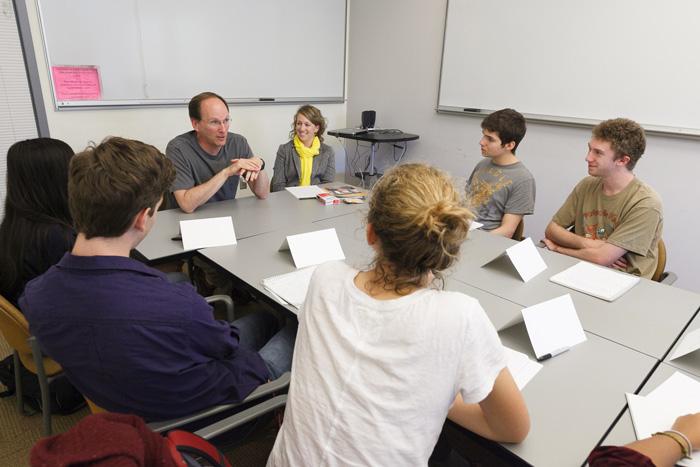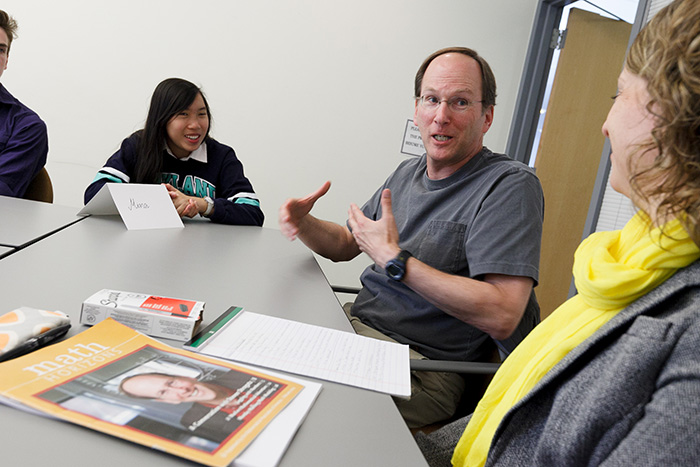Decoding the Bacon Effect

Photo by Carl Socolow '77.
Acclaimed scientist and mathematician probes everyday mysteries during Priestley residency
by MaryAlice Bitts-Jackson
The mysteries of everyday life provide fertile ground for Steven Strogatz, who has built a distinguished career decoding them for scholarly and general readerships. The renowned mathematician, scientist and educator came to Dickinson this month to accept the 2015-16 Joseph Priestley Award, bestowed annually on a scientist whose work has contributed to the welfare of humanity.
A professor of applied mathematics at Cornell University and the author of several bestselling books, Strogatz is said to be the most-cited mathematician in the world. He has guest-blogged for The New York Times, led a TED talk and appeared as a guest on NPR’s RadioLab. His latest book, The Joy of x, has been translated into 15 languages. His honors include a Presidential Young Investigator Award, MIT’s highest teaching prize, a lifetime achievement award for the communication of mathematics to the general public, the Lewis Thomas Prize for Writing About Science and membership in the American Academy of Arts and Sciences.
While on campus, Strogatz worked with physics and mathematics students, including students in a First-Year Seminar on mathematical identities, and he delivered a public Q-and-A session and a lecture, “Synchronization in Nature,” which included investigations into the mathematical underpinnings of crowd mentality and fireflies that flash in unison.

Photo by Carl Socolow '77.
Strogatz’s residency concluded with a joint physics and mathematics colloquium on the “small-world” phenomenon—the idea that we are all interconnected through a vast social network, as suggested, though inaccurately, in the popular “six degrees of Kevin Bacon” theory—and its mathematical mirrors in nature and technology, such the human nervous system and the power grid.
Kyle Liss ’16 (physics, mathematics) attended the Q-and-A session and both of Strogatz’s presentations. He also had a chance to chat informally with the honored guest during a physics luncheon and while escorting Strogatz across campus—invaluable experiences for a student currently applying to Ph.D. programs in mathematical physics.
“He was very down-to-earth and friendly, and he has an amazing ability to communicate mathematics to a general audience, which is something I aspire to obtain,” said Liss. “And I found the extremely interdisciplinary nature of his work inspiring.”
Learn more
- “Synchronization in Nature”
- View video of the lecture.
- Joseph Priestley Award
- Department of Physics & Astronomy
- Latest News
Published October 20, 2015